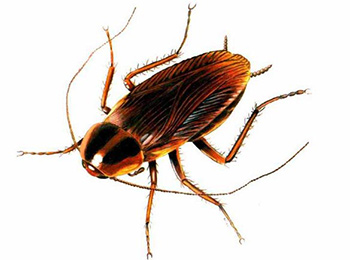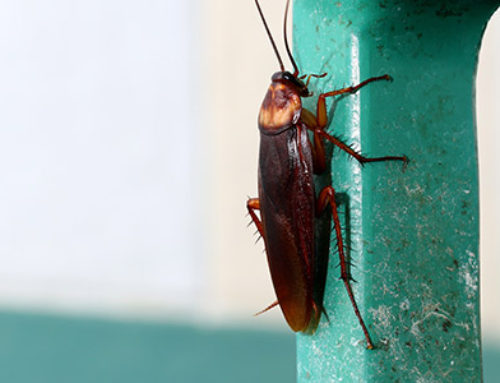 When you think of the things that can trigger an allergic reaction, the items that often come to mind are the usual suspects: dust, plant pollens, pet dander, and stinging insects. Did you know that cockroaches can also cause allergic reactions? Here’s a quick look at how cockroaches can cause allergies, and what you can do to avoid or treat cockroach allergies.
When you think of the things that can trigger an allergic reaction, the items that often come to mind are the usual suspects: dust, plant pollens, pet dander, and stinging insects. Did you know that cockroaches can also cause allergic reactions? Here’s a quick look at how cockroaches can cause allergies, and what you can do to avoid or treat cockroach allergies.
What Is the “Cockroach Allergy”?
The first case of what is now known as “cockroach allergy” was reported in 1943 when skin rashes began to occur after cockroaches crawled over the patient’s skin. By 1959, skin tests had confirmed that such patients had the cockroach allergy, and in the 1970′s, studies found that patients who were affected by cockroach allergies developed rather severe asthma attacks. These asthma attacks happen if you have been inhaling the cockroach allergens, and the attacks could last several hours. It is now understood that when children come in to a hospital with asthmatic complications, especially if they live in an inner city environment, the cause of their asthma is likely cockroach allergens. In fact, according to the Asthma and Allergy Foundation of America, 23 to 60 per cent of children with asthma who are from urban areas are sensitive to the cockroach allergen. One potential causal factor in the cockroach allergy is that some children tend to play more indoors, especially in some inner cities where safety is a concern.
Who Is Most Likely to Suffer From the Cockroach Allergy?
If you have chronic bronchial asthma, then you are likely to have the cockroach allergy as well. You may also have a cockroach allergy if you suffer from other types of asthma, a chronic stuffy nose or sinus infection, repeat ear infections, or a skin rash. As previously
mentioned, children living in the inner cities are more susceptible to the cockroach allergen, due to their low socioeconomic status, which denies their ability to improve their living conditions by hiring exterminators or procuring the appropriate health care to treat symptoms. Symptoms can vary, though they will likely include irritated throat and mildly itchy skin, eyes, and nose. However, these symptoms can evolve into stronger symptoms such as persistent and severe asthma. Given that asthma problems occur all year, unlike seasonal allergies, it is difficult to determine whether or not a cockroach allergy is the cause of the symptoms.
How to Manage Cockroach Allergy In Your Home
The first step is rather obvious, as it involves ridding your home of cockroaches. In order to rid your home of cockroaches, you will need to consult a professional service for pest control in Utah, due to how difficult it is to get them all out. You will then want to leave non-chemical traps for the cockroaches, because chemicals could actually have an adverse affect on your allergies. If after following these instructions, you find that you still have allergy symptoms, you might want to consult an allergist.
Cockroaches aren’t just detestable insects, they can also have an adverse effect on your health, and leave you with chronic allergy symptoms. Take action and reclaim your home as a safe and controlled environment by addressing these steps and you’ll be able to breathe easy knowing that your home is roach free.



